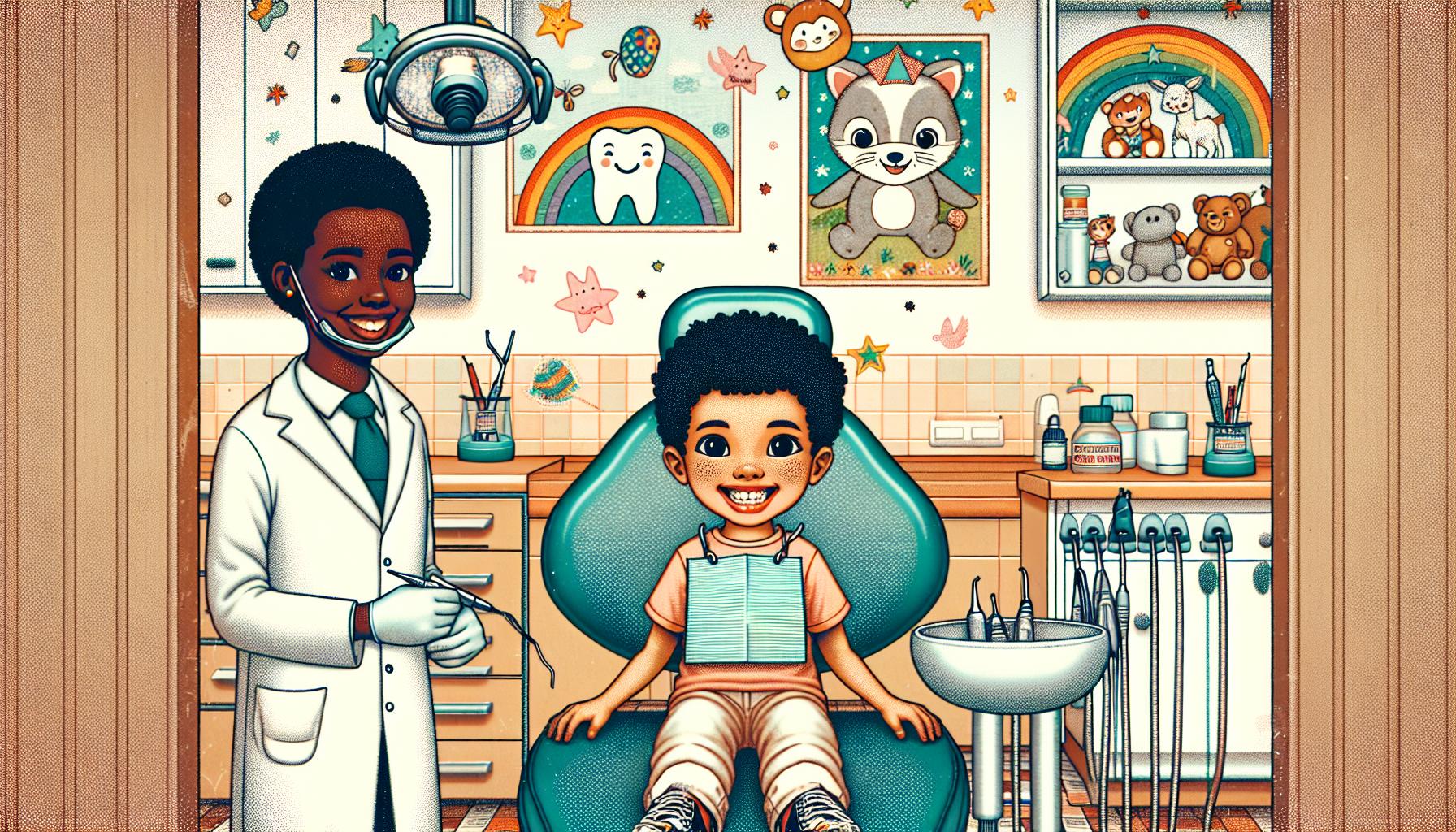Pediatric sleep dentistry is transforming the way dental care is delivered to children, making it a vital aspect of their oral health journey. By addressing anxiety and discomfort during dental procedures, it allows for more effective treatments and encourages positive dental experiences. This article explores the numerous benefits of sleep dentistry for children, highlighting its role in promoting healthier smiles and instilling lifelong dental habits.
Key Takeaways
- Pediatric Sleep Dentistry Overview: This practice provides dental care in a relaxed setting, significantly reducing children’s anxiety during procedures and leading to better cooperation and outcomes.
- Sedation Benefits: Sedation techniques facilitate effective treatment of common dental issues such as cavities and extractions, ensuring children remain calm and comfortable throughout the process.
- Enhanced Treatment Outcomes: The calming effects of sleep dentistry improve the success rates of various dental procedures, resulting in reduced discomfort and complications.
- Long-Term Dental Habits: Positive early experiences in a supportive environment help children create healthy attitudes towards dental care, promoting lifelong good habits like regular brushing and flossing.
- Encouragement of Regular Visits: A stress-free dental experience increases the likelihood of children attending regular check-ups, aiding in the early detection and prevention of dental issues.
- Parental Role: Active parental involvement in preparing for dental visits and maintaining ongoing oral care is crucial in supporting their children’s comfort and instilling good oral hygiene practices.
Overview of Pediatric Sleep Dentistry
Pediatric sleep dentistry focuses on providing dental care to children in a relaxed and safe environment, reducing anxiety during treatments. Services such as those offered by Brisbane Dental Sleep Clinic Benowa Pediatric Services play a pivotal role in ensuring children have positive experiences, enhancing their oral health journey. This approach enhances patient cooperation and improves treatment outcomes.
Definition and Purpose
Pediatric sleep dentistry uses sedation techniques to help children undergo dental procedures comfortably. Its main purpose is to manage anxiety and discomfort associated with dental visits, making it easier for children to receive necessary care without stress. This proactive approach fosters a positive attitude towards dental health that can last into adulthood.
Common Procedures Involved
Several common procedures benefit from pediatric sleep dentistry. These include:
- Cavity Treatment: Sedation allows dentists to address cavities efficiently while minimising discomfort.
- Tooth Extraction: Difficult extractions become manageable, ensuring children remain calm throughout the process.
- Restorative Treatments: Procedures like fillings and crowns can be performed without distress, promoting a more positive experience.
- Orthodontic Assessments: Evaluations and adjustments for braces occur with reduced anxiety and increased cooperation.
Pediatric sleep dentistry aims to create a supportive dental environment, encouraging children to maintain good oral health habits throughout their lives.
Benefits to Children’s Oral Health

Pediatric sleep dentistry provides several advantages that significantly enhance children’s oral health. The approach creates a more responsive and effective dental experience.
Alleviation of Anxiety
Pediatric sleep dentistry significantly reduces anxiety in children during dental visits. By using sedation techniques, dental professionals create a calming environment that helps children feel safe. This reduction in anxiety enables children to remain relaxed, ensuring they undergo necessary treatments without distress. A stress-free experience fosters a positive association with dental care, encouraging regular visits and proper oral hygiene habits.
Improved Treatment Outcomes
Improved treatment outcomes stand out as a crucial benefit of pediatric sleep dentistry. With children more relaxed and cooperative, dental professionals can perform procedures efficiently. This leads to higher success rates in treatments such as cavity fillings, extractions, and orthodontic adjustments. Additionally, minimising movement and discomfort during procedures decreases the likelihood of complications and allows for thorough examination and treatment. Consequently, children establish healthier oral health routines, reducing the need for extensive dental interventions in the future.
Long-Term Impact on Dental Habits
Pediatric sleep dentistry significantly influences children’s long-term dental habits by fostering positive early experiences with oral care.
Instilling Positive Dental Experiences
Pediatric sleep dentistry creates a calming environment, helping children associate dental visits with comfort rather than fear. When children undergo procedures without distress, their perception of dental care becomes favourable. Positive experiences lead to reduced anxiety about future visits, allowing children to approach dental health with confidence. Parents often observe that children who experience less discomfort during treatments are more willing to comply with oral hygiene practices, reinforcing the importance of regular brushing and flossing.
Encouraging Regular Dental Visits
Pediatric sleep dentistry encourages regular dental visits by providing a stress-free experience. Children are more likely to attend check-ups and follow-ups when they know the environment is supportive. Consistent dental visits contribute to early detection and prevention of dental issues. Routine examinations instil the habit of regular oral health monitoring, which is crucial for maintaining long-term healthy teeth and gums. As children develop this habit, they set the foundation for a lifetime of good dental health practices.
The Role of Parents in Pediatric Sleep Dentistry
Parents play a vital role in ensuring their child benefits from pediatric sleep dentistry. Their involvement can enhance a child’s comfort and understanding during dental procedures.
Preparing Children for Procedures
Preparing children for dental procedures involves open communication and reassurance. Parents should discuss the upcoming visit, explaining what to expect without inducing fear. Using simple, age-appropriate language can help demystify the process. Demonstrating relaxation techniques, such as deep breathing or listening to calming music, can further alleviate anxiety. Parents can also encourage questions, providing clear answers to foster a sense of security. Involving children in the preparation, like choosing a favourite toy to bring, can make the experience feel more personal and less intimidating.
Ongoing Oral Care After Treatment
Ongoing oral care after treatment remains crucial for maintaining dental health. Parents should reinforce proper brushing and flossing techniques at home, ensuring children adopt these habits early. Regular supervision during oral care routines helps establish consistency and proper technique. Scheduling follow-up appointments with the dentist ensures any issues are promptly addressed. Parents can also promote a balanced diet low in sugary snacks to support oral health. Encouraging discussions about the benefits of good oral hygiene reinforces its importance, helping children understand that healthy habits contribute to their overall well-being.
Conclusion
Pediatric sleep dentistry serves as a transformative approach to children’s oral health. By creating a calm and supportive environment it significantly reduces anxiety associated with dental visits. This not only enhances the overall experience but also fosters a positive relationship with dental care from an early age.
With improved cooperation during procedures children benefit from more effective treatments and better outcomes. This approach lays the groundwork for lifelong oral hygiene habits and regular dental visits. Parents play a crucial role in this journey by preparing their children and promoting healthy practices at home.
Ultimately the benefits of pediatric sleep dentistry extend beyond the dental chair contributing to a brighter and healthier future for children’s smiles.
Frequently Asked Questions
What is pediatric sleep dentistry?
Pediatric sleep dentistry is a specialised approach that provides dental care for children in a relaxed and safe environment. It uses sedation techniques to alleviate anxiety and discomfort during procedures, promoting effective treatments and positive experiences at the dentist.
How does pediatric sleep dentistry benefit children’s oral health?
It significantly reduces anxiety during dental visits, creating a calming atmosphere that helps children feel safe. This leads to improved cooperation, better treatment outcomes, and fosters a positive association with dental care, encouraging regular visits and good oral hygiene habits.
What types of procedures can be performed under pediatric sleep dentistry?
Common procedures include cavity treatments, tooth extractions, restorative treatments, and orthodontic assessments. These procedures can be carried out with reduced distress for the child, ensuring they remain comfortable throughout.
How can parents prepare their children for dental visits?
Parents can prepare children by using open communication and reassurance, explaining what to expect in age-appropriate language. Involving children in the preparation process and demonstrating relaxation techniques can also make the experience feel less intimidating.
What role do parents play in maintaining dental health after treatments?
Parents should reinforce proper brushing and flossing techniques, supervise oral care routines, and schedule follow-up appointments. Encouraging a balanced diet low in sugary snacks and discussing the importance of good oral hygiene further supports children’s dental health.
